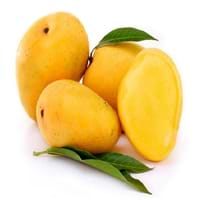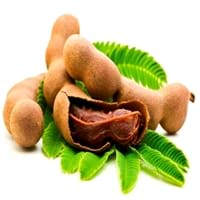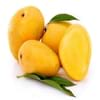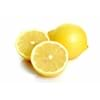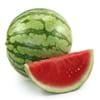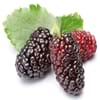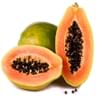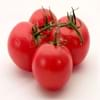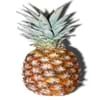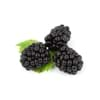Health Benefits
Cancer prevention, Cures fatigue, Heart care, Prevents strokes
Boosts immune system, Boosts respiratory health, Cancer prevention, Digestive aid, Piles treatment
General Benefits
Anti oxidant properties, Boosts immune system, Controls blood pressure, Digestive aid, Improves eye vision, Maintains healthy cholesterol level
Beneficial in improving nerve function, Protects against parasites and worms, Relieves pain
Skin Benefits
Anti-aging benefits, Brightens and lightens complexion, Skin cleansing, Skin rejuvenation, Treatment of acne, Treatment of blackheads, Treatment of dark spots
Anti-aging benefits, Brightens and lightens complexion, Exfoliates skin, Hydrates skin, Treatment of dark spots
Hair Benefits
Good conditioner, Prevents hair loss, Treatment of dandruff
Prevents hair loss
Allergy Symptoms
Abdominal pains, Breathing difficulty, Diarrhea, Runny nose, Sneezing, Swelling of mouth, tongue or lips, Watery eyes
Abdominal pains, Breathing difficulty, Dizziness, Eczema, Fainting, Hives, Itching, Nasal congestion, Swelling of face, Tingling sensation in mouth, Vomiting
Side Effects
Increase in blood sugar level, Diarrhoea, Weight gain
Decrease in blood sugar levels, Induces acid reflux, Allergic reaction, Tooth decay, May form gallstones
Best Time to Eat
Don't consume at night and before bed, Eat the fresh ones, avoid mixing with any other foods, don't eat after meal., Morning time (before lunch)
Along with meal, As a snack in the late afternoon, Don't consume at night and before bed, Strictly avoid empty stomach
Vitamin B5 (Pantothenic Acid)
Vitamin C (Ascorbic Acid)
Vitamin K (Phyllochinone)
Phytosterol
Not Available
Calories in Fresh Fruit with Peel
Not Available
Not Available
Calories in Fresh Fruit without Peel
Calories in Canned Form
Not Available
Season
Spring, Summer
Spring, Summer
Varieties
Alphonso, Valencia Pride, Badami, Chaunsa, Nam Dok Mai, Glenn, Sindhri, Madame Francique, Kesar and Keitt
PKM 1, Urigam, Hasanur, Tumkur prathisthan, DTS 1 and Yogeshwari
Color
Orange, Red, Yellow
Brown, Reddish-brown
Inside Color
Yellow
Brown
Shape
Oval
Curving Cylinder
Origin
Southern Asia
Africa
Soil Type
Clay, Loam, Sand
Loam, Sandy, Sandy loam, Well-drained
Climatic Conditions
Humid, Warm to hot climate
Humid to dry, Rainfall, Warm to hot climate
Facts about
- A mango tree can bear fruits even after the age of 300 years.
- Height of a mango tree can be as high as 100 feet.
- In India, mango is known as a symbol of love. Also, a mango basket is considered as the sign of friendship.
- Tamarind is used to prevent body odor.
- African children use the tamarind seeds in games.
- No cases of tamarind toxicity or allergy reported till date.
Other Countries
Bangladesh, Brazil, China, Indonesia, Mexico, Nigeria, Pakistan, Philippines, Thailand
Africa, Australia, Brazil, China, Mexico, Nigeria, Sudan, Taiwan
Top Importer
United States of America
United States of America
Top Exporter
Mexico
Thailand
Botanical Name
Mangifera Indica
Tamarindus indica
Synonym
Not Available
Tamarindo, tamarindus
Subkingdom
Tracheobionta
Tracheobionta
Division
Magnoliophyta
Magnoliophyta
Class
Magnoliopsida
Liliopsida
Family
Anacardiaceae
Fabaceae
Genus
Mangifera
Tamarindus
Species
M. indica
Tamarindus indica
Generic Group
Cashew
Tamarind Sub
Compare Mango and Tamarind
It is important compare Mango and Tamarind as both the fruits have a different nutritional value. Their comparison can be done on the basis of their vitamin and mineral content, calories, benefits as well as characteristics, making it easier for us to choose the best fruit for our diet. Their general health benefits are as follows:
Mango Benefits: anti oxidant properties, boosts immune system, controls blood pressure, digestive aid, improves eye vision and maintains healthy cholesterol level.
Tamarind Benefits: beneficial in improving nerve function, protects against parasites and worms and relieves pain.
Fruits are also used as a remedy for various hair problems. The hair benefits of Mango are: good conditioner, prevents hair loss and treatment of dandruff and hair benefits of Tamarind are: prevents hair loss. Some fruits are known to cause allergic reactions. The allergy symptoms of first fruit are: abdominal pains, breathing difficulty, diarrhea, runny nose, sneezing, swelling of mouth tongue or lips and watery eyes and the symptoms of second fruit are: abdominal pains, breathing difficulty, dizziness, eczema, fainting, hives, itching, nasal congestion, swelling of face, tingling sensation in mouth and vomiting. Get sorted Mango vs Tamarind comparison with the help of fruit comparison tool by fruitvs.com.
